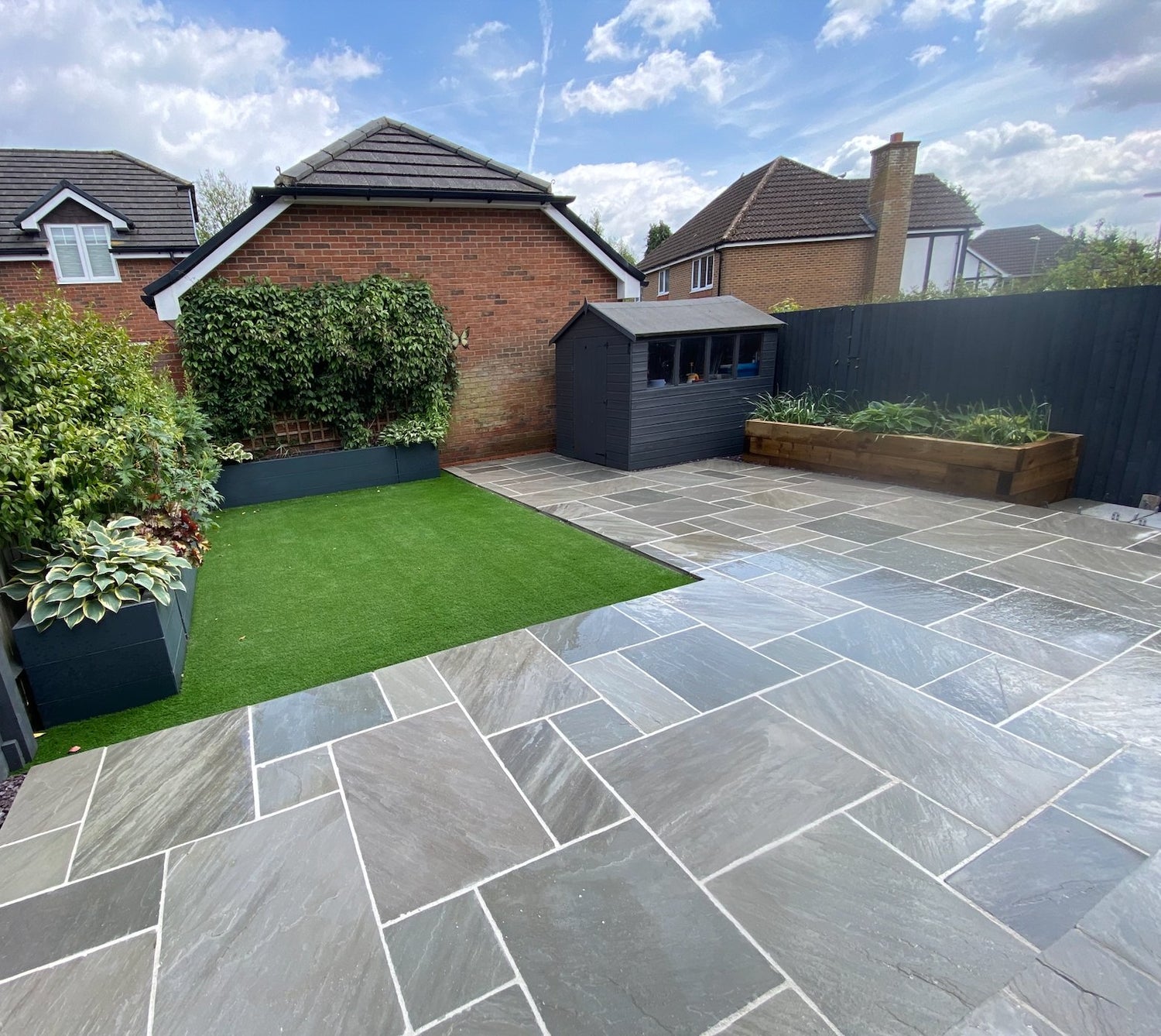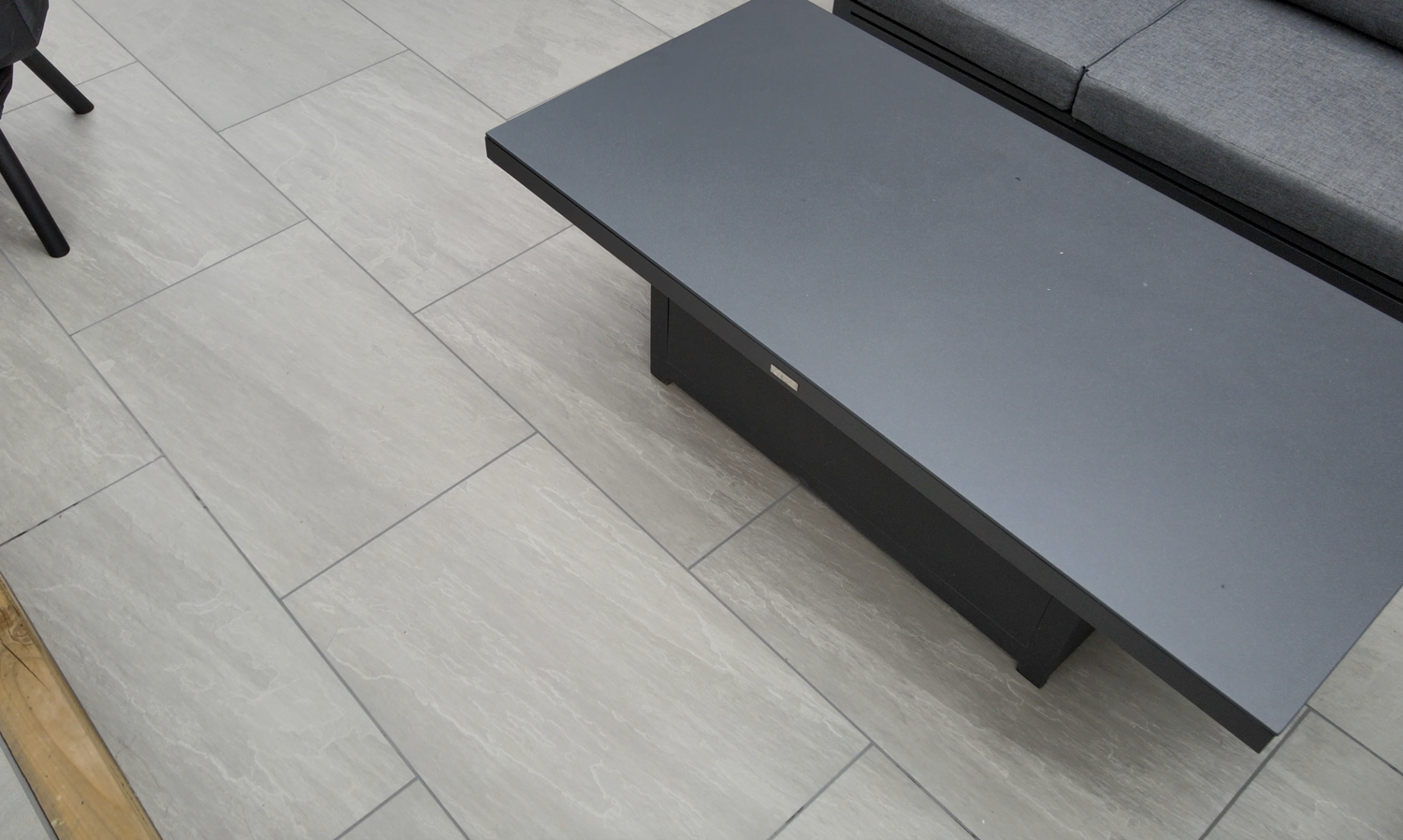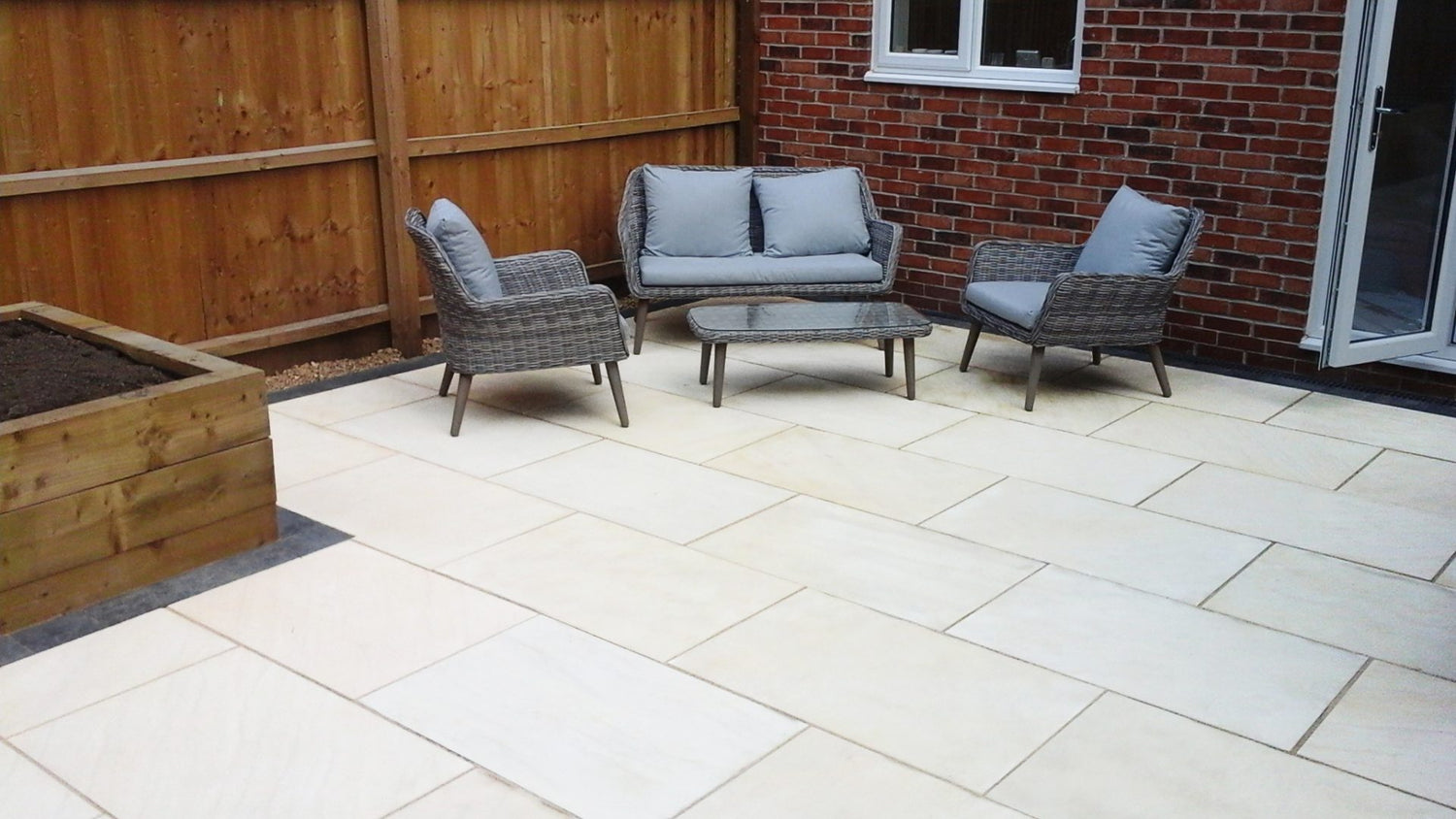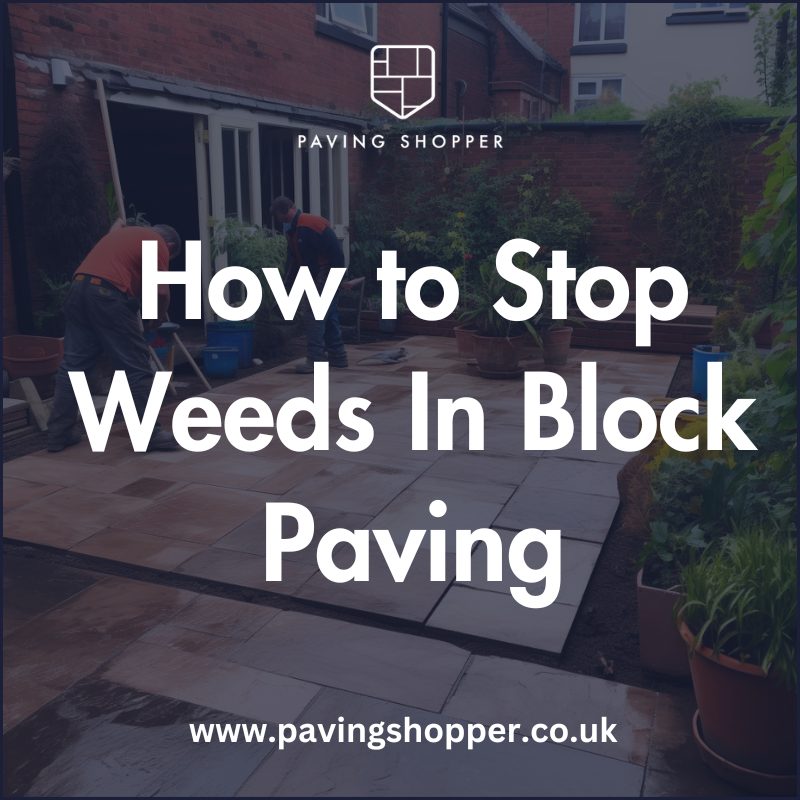
How to Stop Weeds in Block Paving: Expert Tips andTricks
Share
Weeds growing between the blocks of your paving can be an unsightly and frustrating problem. Not only do they make your outdoor space look unkempt, but they can also cause damage to the paving if left untreated. Fortunately, there are several steps you can take to stop weeds from growing in block paving and keep your outdoor space looking neat and tidy.
First, it's important to understand why weeds and moss grow in block paving. Weeds thrive in areas with poor drainage, so if your block paving isn't draining properly, you're more likely to have problems with weeds. Additionally, if there are gaps between the blocks, weeds can easily take root and grow. By addressing these underlying issues, you can prevent weeds from growing in the first place.
There are several preventative measures and solutions you can use to stop weeds from growing in block paving. These include using weed killer, sealing the paving, and using a power washer to remove any existing weeds. By taking a proactive approach to weed control, you can keep your outdoor space looking great and prevent damage to your block paving.
Key Takeaways
- Weeds grow in areas with poor drainage and gaps between blocks.
- Preventative measures and solutions include using weed killer, sealing the paving, and using a power washer.
- Taking a proactive approach to weed control can prevent damage to block paving and keep outdoor spaces looking great.
Understanding Weeds in Block Paving
Block paving is a popular choice for driveways, patios, and walkways. However, it is not immune to the growth of weeds. Weeds can be a nuisance, and if left unchecked, they can cause damage to the block paving. In this section, we will discuss the different types of weeds commonly found, why weeds grow in paving blocks, and the importance of regular maintenance.
Types of Weeds Commonly Found
There are many different types of weeds that can grow in block paving. Some of the most common weeds include:
- Dandelion
- Clover
- Plantain
- Moss
- Algae
Each of these weeds has its own unique characteristics and can be difficult to get rid of once they have taken root.
Why Weeds Grow in Paving Blocks
Weeds can grow in paving blocks for a variety of reasons. One of the most common reasons is that the paving blocks provide an ideal environment for weed growth. Paving blocks are porous, which means that they can hold onto moisture and nutrients, providing the perfect breeding ground for weeds. Furthermore, during the warmer months, summer garden paving can experience an increase in weed growth due to the higher temperatures and increased sunlight, creating an even more conducive environment for weeds to thrive in the spaces between paving blocks.
Another reason why weeds grow in paving blocks is that they are often not installed properly. If the blocks are not laid correctly, there can be gaps between them, which can allow weeds to grow through.
The Importance of Regular Maintenance
Regular maintenance is essential for preventing weed growth in block paving. It is recommended that block paving is swept and cleaned at least once a year to remove any debris and prevent the build-up of dirt and grime. This will help to prevent weeds from taking root and growing.
In addition to regular cleaning, it is also important to fill any gaps between the paving blocks. This will prevent weeds from growing through and will help to keep the block paving looking neat and tidy.
In conclusion, understanding the types of weeds commonly found, why weeds grow in paving blocks, and the importance of regular maintenance is essential for preventing weed growth in block paving. By taking the necessary steps to maintain your block paving, you can ensure that it remains weed-free and looks great for years to come.
Preventative Measures and Solutions
Block paving is a popular choice for driveways and patios, but it can be a haven for weeds. Preventing weeds from growing in block paving requires a combination of preventative measures and solutions. Here are some effective ways to keep block paving weed-free.
Choosing the Right Materials
One of the most important preventative measures is to choose the right materials. The type of block paving you choose can make a big difference in how easily weeds can grow. Porous block paving allows water to drain through, which can create a hospitable environment for weeds. Non-porous block paving, on the other hand, does not allow water to drain through, making it less hospitable to weeds.
Applying Pre-Emergent Herbicides
Another effective preventative measure is to apply pre-emergent herbicides. These herbicides work by preventing weed seeds from germinating. They are best applied in the spring before the weeds have a chance to grow. It is important to follow the instructions carefully when applying pre-emergent herbicides, as they can be harmful to other plants if used improperly.
Sealing Paving Joints Effectively
Sealing the joints between the blocks is another effective solution for preventing weeds from growing in block paving. The joints between the blocks are where weeds can take root and grow. Sealing the joints with a high-quality sealant can prevent weeds from growing in these areas. It is important to choose a sealant that is specifically designed for block paving and to follow the manufacturer's instructions carefully when applying it.
Natural Remedies for Weed Prevention
For those who prefer natural remedies, there are several options for preventing weeds from growing in block paving. One option is to use boiling water or vinegar to kill weeds. Another option is to use a mixture of salt and water. These natural remedies can be effective, but it is important to use them carefully, as they can also harm other plants.
Overall, preventing weeds from growing in block paving requires a combination of preventative measures and solutions. By choosing the right materials, applying pre-emergent herbicides, sealing paving joints effectively, and using natural remedies, it is possible to keep block paving weed-free.
Frequently Asked Questions
What methods effectively prevent weed growth between block paving?
Keeping the block paving clean and free of any dirt is the first step in preventing weed growth between the blocks. Additionally, ensuring that any gaps between the blocks are filled with sand or joint compound will prevent weeds from starting to grow in the first place. Regularly sweeping the block paving to remove any debris will also help prevent weed growth.
Is it possible to permanently eliminate weeds between paving stones?
While it is not possible to permanently eliminate weeds from between paving stones, there are several methods that can be used to control and reduce weed growth. Regularly removing weeds and applying weed killers can help keep weed growth under control.
Can household vinegar be used to control weeds on block paving?
Yes, household vinegar can be used to control weeds on block paving. However, it is important to note that vinegar can also kill surrounding plants and grass. A solution of vinegar and water can be sprayed onto weeds to kill them, but care should be taken to avoid spraying the solution on desirable plants.
Does pouring boiling water offer a natural solution for weed removal in paving joints?
Yes, pouring boiling water onto weeds growing between paving joints can be an effective natural solution for weed removal. The hot water will kill the weeds, but care should be taken to avoid pouring the water onto surrounding plants or grass.
What is the best manual tool for extracting weeds from block paving?
The best manual tool for extracting weeds from block paving is a weed removal tool with a long handle. This will allow the user to remove weeds without having to bend down or kneel on the ground. Additionally, the tool should have a sharp, pointed end to help remove the entire weed, including the roots.
How can block paving be sealed to deter future weed infestations?
Block paving can be sealed with a sealant specifically designed for block paving. This will help prevent water and dirt from getting into the gaps between the blocks, which can lead to weed growth. Additionally, regular cleaning and maintenance of the block paving will help prevent future weed infestations.
Related Posts
-

UK Garden Statistics and Trends 2024
UK Garden Statistics and Trends 2024 General UK Garden Statistics The vast majority of UK households have access to ...
-

Can I lay Paving on Soil or Mud?
Technically, yes – you can lay paving stones or slabs directly onto exposed topsoil however, laying a sub-base will e...
-

How Much Does a New Patio Cost?
A new patio in the UK typically costs between £80-£150 per square meter. For a 40-50 sqm patio, expect to pay £2,000-...
-

What Different Sizes Do Paving Slabs Come In?
When planning a patio or outdoor paving project, one of the key decisions is choosing the right size paving slabs. ...
-

Can You Pressure Wash Indian Sandstone?
Indian sandstone is a popular choice for outdoor paving due to its durability and attractive appearance. However, li...
-

Is Sandstone Paving Permeable? Is it porous?
Sandstone's porous nature enables it to absorb rainfall, qualifying it as a permeable paving variety. However, seali...
-

Where Does Natural Sandstone Paving Come From?
Sandstone begins deep underground, formed over eras as minerals and sediments fused under pressure. Powerful forces ...
-

5 Paving Ideas for Small Gardens: Maximise Your Outdoor Space
Front of House When considering paving ideas for the front of your house, it's crucial to select ones that complem...
-

9 Paving Ideas for Front of House: Enhancing Curb Appeal with Style
The facade of a house plays a pivotal role in defining its character and curb appeal, and the choice of paving can s...
-

9 Summer Garden Paving Ideas UK
Summer gardens offer a vibrant canvas for homeowners to express their style while enhancing outdoor living spaces. G...
-

8 Garden Paving Ideas for 2024
It's time to refresh your garden's look for 2024 and an easy way to do that is with some new paving. With so many opt...
-

How to remove moss from patio paving
Moss growth is a common issue for patio paving, especially in damp, shaded areas. While moss may seem harmless, it ca...
-

How much does sandstone paving cost?
When choosing new garden pavers, sandstone offers homeowners an enticing middle-ground - more durable than basic conc...
-

Why Do Paving Slabs Crack And How To Repair Them
Seeing cracks appear on your patio or driveway can be disheartening after investing time and money into installing be...
-

How to lay paving in winter (Tips & Tricks)
How Cold Temperatures Impact Paving Projects The primary concern when working in cold weather is ensuring proper curi...
-

Sub Bases For Patios
Building the Perfect Patio Base: A Comprehensive Guide When planning an outdoor living space, understanding proper ba...
-

Pros and Cons of Porcelain Paving
Are you considering adding porcelain paving to your outdoor space? It's important to weigh the pros and cons before ...
-

Understanding Paving Slip Ratings: A Comprehensive Guide
A paving slip rating, also known as a slip resistance or anti-slip rating, is a measure of how slippery a surface...
-

Stunning Garden Water Feature Ideas - Enhance Your Outdoor Space
Garden water features are decorative elements that incorporate water into a garden, adding beauty and a sense of ...
-

How to clean paving without a pressure washer
A patio cleaner is a cleaning solution designed specifically for removing dirt, grime, and stains from outdoor patio...
-

How to Grout Paving Slabs – Expert Tips and Techniques
Pointing paving slabs is an important step in the process of installing them. Grout is a mixture of cement, water...
-

Block Paving Guide | What Does it Cost? | How Much Per m2?
Block paving is a versatile and durable option for creating driveways, patios, and paths. This method involves using...
-

Porcelain VS Ceramic Paving
Porcelain paving is non-porous and more durable than ceramic paving, which is more porous and prone to stains and wea...
-

Sandstone V Porcelain Paving - (Style Comparison and Distinctions)
When choosing materials for your patio or driveway, two of the most popular options are sandstone paving slabs and p...
-

Understanding Gradients and Falls for Paving and Drainage (2024)
When it comes to paving and drainage projects, understanding the correct gradients and falls is essential for ensuri...
-

Indian Sandstone Paving Colours for A Patio - A Comprehensive Guide
Indian sandstone is one of the most popular paving materials, celebrated for its natural beauty and the variety of co...
-

Jointing and Pointing For Paving (Sand & Cement Mix)
Patio pointing is important for both looks and durability. It protects the layers under your paving, stops weeds, and...
-

How to Lay Paving on Sand and Cement: Expert Advice and Tips
Paving on Sand and Cement: A Comprehensive Guide When it comes to enhancing your outdoor space, paving is a popular ...
-

Pros and Cons of Sandstone Paving
Pros & Cons of Indian Sandstone Paving Indian sandstone paving is a natural and durable option that adds both bea...
-
Does Patio Paving Need Edging? A Comprehensive Guide
In this article, we'll explore the importance of patio edging, the different types of edging materials available, and...
-

Pet Friendly Paving - What is the best paving for a dog-friendly garden?
Creating a dog-friendly garden requires choosing the right paving materials to ensure your furry friends can enjoy t...
-

Patio Paving Laying Patterns Guide
Paving patterns can transform an ordinary outdoor space into a stunning and eye-catching area that complements your ...
-

Patio Kits vs Single Size Paving Slabs: Which To Choose?
When designing a patio or outdoor space, one crucial decision is whether to use a patio kit (also known as patio pack...
-

Are paving slabs suitable for driveways?
This is a question many homeowners ask when it comes to choosing the right type of driveway surface for their home. T...
-

How much paving do you need to cover your outdoor space?
Planning an outdoor paving project is exciting, but it’s crucial to accurately estimate the amount of paving needed b...
-

What is the Best Paving for Patios?
When it comes to choosing the best paving for patios, there are a variety of factors to consider, such as durability,...
-
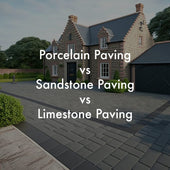
Sandstone v Limestone v Porcelain: The Pros and Cons of Different Garden Paving Materials
Transforming your outdoor space involves choosing the right paving material, and porcelain and sandstone are two of t...
-
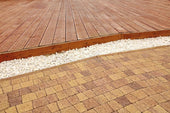
Are Paving Slabs Cheaper Than Decking?
Transforming your backyard into the ultimate outdoor oasis can be challenging when choosing between paving slabs or d...
-

How to lay a patio - An expert guide to laying paving slabs and patterns
There are a few things to consider before laying a patio, such as the type of paving stones and the laying pattern. Y...
-
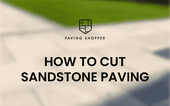
How to cut Sandstone Paving?
When it comes to prepping your garden for a new patio, you may consider different designs that require your paving to...









































